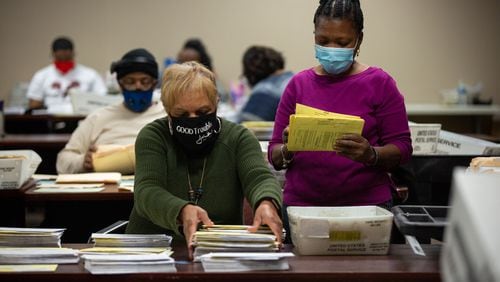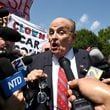At a moment when moral leadership is desperately needed in America and across the globe, we need to remember Bobby Kennedy and his style of moral leadership. Another American hero who was killed by a gun in 1968 at the age of 42, U.S. Senator Kennedy demonstrated the art of bringing diverse people together for the purpose of improving the nation, and he repeatedly expressed his great faith that young people and students would lead us to achieve a better world.
Fifty years later, today’s students are mobilizing to make changes in gun laws, police behavior, respecting women, the environment and many other social concerns. They need to take a page from the playbook of Bobby Kennedy.
For years, I have anticipated and dreaded the arrival of 2018, a perfectly ambivalent time zone of ecstasy and pain. We are here now, and far from being re-traumatized by painful memories, I am grateful for the lives of, and surprised by the abiding relevance of Bobby Kennedy and Martin King.
In times of moral ambiguity and deep division, we need moral leaders who can bring us together and offer guidance, correction and hope. That’s what Kennedy did on the night that Rev. King was murdered just two short months before his own assassination.
I was a high school student in Chicago and felt crushed by the news of King’s death in Memphis. Searching for a way to make sense of the senseless theft of the life of another good man, on the radio I heard the soft and wavering but confident remarks of Robert F. Kennedy as he spoke impromptu to a crowd of people gathering in the streets of Indianapolis.
Kennedy did what moral leaders do. He started with empathy. He reminded people, especially African Americans angered by King’s murder that his own brother was also murdered, but this did not cause him to hate. His four-minute speech became King’s first eulogy as he said, “What we need in the United States is not division; what we need in the United States is not hatred; what we need in the United States is not violence or lawlessness; but love and wisdom, and compassion toward one another, and a feeling of justice toward those who still suffer within our country, whether they be white or they be black.”
In a haunting coincidence in 1966, almost two years to the day of his own assassination, Bobby spoke to members of the National Union of South African Students at the University of Cape Town as they mobilized to dismantle apartheid.
In 2006, my wife and I were in South Africa for the 40th anniversary of that speech and visited with the senator’s daughter, Rory Kennedy, after she delivered a speech to remember the occasion. We all celebrated his empathy and his truthfulness as he spoke of America’s freedom struggle and the courageous black and white students who were dismantling racism in America.
Bobby said, “Each nation has different obstacles and different goals, shaped by the vagaries of history and of experience. Yet as I talk to young people around the world I am impressed not by the diversity but by the closeness of their goals, their desires and their concerns and their hope for the future.” Then he cited the many examples of social evil in the world that “reflect the imperfections of human justice” and reminded them that the youth today represent “the only true international community” as he applauded their willingness to make sacrifices on behalf of a better society.
I teach classes at Emory University that attempt to understand the principles and practices of moral leaders. We delve into their personal qualities or virtues, their ways of thinking about justice, and the outcomes they have. We believe that they have integrity, courage and imagination for serving the common good while inviting others to join them. They have a knack for standing in places of suffering and conflict to offer words of hope, justice and the possibility of reconciliation.
In so many ways, Bobby Kennedy represented the best qualities of a moral leader. He had his faults and never pretended to be perfect, but he possessed integrity, courage and imagination aimed at serving the common good.
Bobby and Martin were relatively privileged men. Both were well-educated, reared by loving parents in comfortable households and could have enjoyed lives of personal prosperity, fame and power. Instead, both responded to the call of conscience and crisis in their democracy. Their service, their sacrifice and their service merit our attention today and compel us to dare greatness once again by repairing the faults of the promising nation that they loved.





